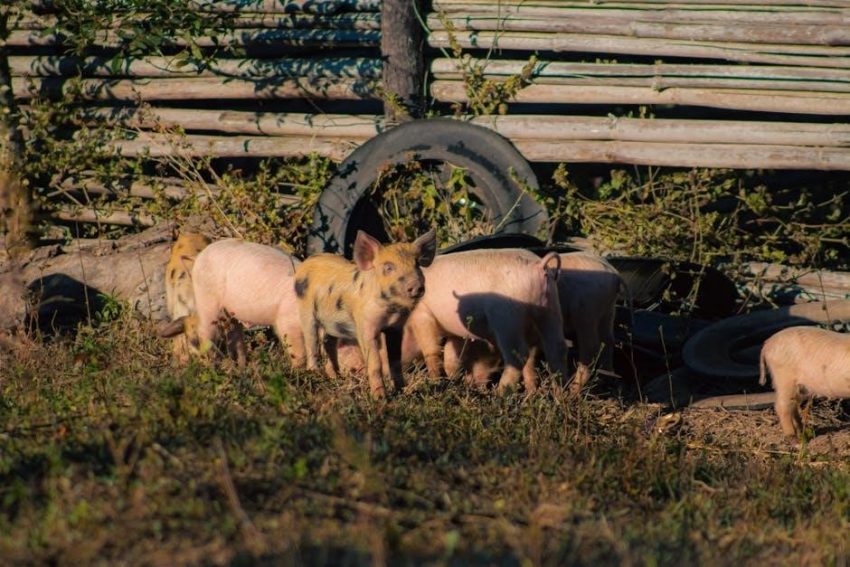Sopas de letras, or word search puzzles, are engaging activities where words are hidden within a grid of letters․ They are widely used for entertainment, education, and cognitive training, promoting language learning and mental agility while offering relaxation and fun for all ages․
Definition and Overview
Sopas de letras, or word search puzzles, are grids of letters where words are hidden vertically, horizontally, or diagonally․ They are popular in Spanish-speaking countries and used for entertainment, education, and cognitive training․ The goal is to find and circle all the hidden words, enhancing vocabulary and mental agility․ These puzzles are versatile, suitable for all ages, and often themed around specific topics like food, animals, or professions․ They are widely used in language learning and as a tool for relaxing and sharpening the mind․
Historical Background
Sopas de letras, or word search puzzles, have a long-standing history rooted in cognitive and language development exercises․ Originating from earlier word games, they gained popularity in the mid-20th century as tools for entertainment and education․ These puzzles were initially created manually, often themed around specific subjects like geography or literature․ Over time, their popularity spread globally, adapting to different languages and cultures, including Spanish-speaking regions․ The rise of digital technology further enhanced their accessibility, allowing for the creation of themed and interactive versions․ This evolution has solidified their place as a beloved and enduring cognitive activity․
Popularization and Modern Usage
Sopas de letras gained widespread popularity as a cognitive tool and entertainment medium․ With the advent of digital technology, they transitioned from manual creation to computer-generated designs, making them more accessible․ Modern versions often feature themed puzzles, such as food, animals, or historical figures, catering to diverse interests․ Educational institutions and language learners widely use them to enhance vocabulary and grammar skills․ Digital platforms and mobile apps have further popularized sopas de letras, offering interactive and competitive versions․ This versatility has cemented their place as a beloved activity for mental stimulation and leisure across all age groups․

Psychological Benefits of Sopas de Letras
Sopas de letras enhance memory, boost logical thinking, and improve mental flexibility․ They provide relaxation, reduce stress, and offer a fun way to stay cognitively active at any age․
Memory Enhancement
Sopas de letras enhance memory by requiring active recall and pattern recognition, strengthening the brain’s ability to retrieve information․ Engaging in these puzzles regularly improves concentration and attention, key factors in memory retention․ They also promote mental agility and cognitive flexibility, essential for maintaining sharp memory skills․ By challenging the mind to locate and remember hidden words, sopas de letras help build cognitive reserve, reducing the risk of age-related memory decline and supporting overall brain health․
Logical Thinking and Problem-Solving Skills
Sopas de letras foster logical thinking by challenging individuals to methodically search for hidden words within a grid․ This activity requires strategic planning and analytical skills, as players must identify patterns and connections between letters․ Regular engagement with sopas de letras enhances problem-solving abilities by encouraging critical thinking and mental adaptability․ Players learn to approach challenges systematically, which translates to improved cognitive function and better decision-making skills in everyday situations․ Solving these puzzles consistently can strengthen one’s capacity for logical reasoning and efficient problem resolution․
Mental Flexibility and Speed
Sopas de letras enhance mental flexibility by requiring quick adaptation and efficient scanning of letter grids․ This activity sharpens the ability to switch between different words and patterns, improving cognitive agility․ Regular practice boosts processing speed and adaptability, making it easier to handle complex mental tasks․ Engaging in sopas de letras trains the brain to think dynamically, fostering a nimble and responsive mindset essential for various cognitive challenges․
Stress Relief and Relaxation
Engaging in sopas de letras offers a calming escape from daily stress, providing a mental distraction that fosters relaxation․ The focused, methodical process of searching for words can be meditative, reducing anxiety and promoting a sense of calm․ This activity allows individuals to unwind and disconnect from pressures, offering a therapeutic outlet․ The satisfaction of finding hidden words further enhances mood and overall well-being, making sopas de letras a beneficial tool for stress relief and emotional balance․
Educational Applications of Sopas de Letras
Sopas de letras are widely used in education to enhance language learning, vocabulary expansion, and grammar practice․ They also aid in cognitive development, making them a versatile educational tool․
Language Learning and Vocabulary Expansion
Sopas de letras are a valuable tool for language learners, helping to expand vocabulary and improve spelling skills․ By identifying words in a grid, learners engage with new terms in a fun, interactive way․ Themed puzzles, such as food or animal-related sopas, introduce categorized vocabulary, making it easier to remember and associate words․ This method enhances retention and encourages learners to think critically about word meanings and contexts․ It also complements traditional learning methods, offering a dynamic approach to language acquisition․ Regular practice with sopas de letras can significantly boost linguistic confidence and proficiency․
Grammar and Syntax Practice
Sopas de letras can be an innovative tool for practicing grammar and syntax․ By incorporating word forms, verb conjugations, and sentence structures within the puzzles, learners can engage with grammatical concepts in a hands-on way․ For example, finding verbs in specific tenses or identifying correct sentence fragments within the grid can reinforce syntactical awareness․ This interactive approach makes grammar practice more engaging and accessible, helping learners internalize rules and apply them effectively in their language use․
Cognitive Development in Children
Sopas de letras are an engaging tool for enhancing cognitive development in children․ They improve memory by requiring kids to recall word locations and spellings․ Problem-solving skills are sharpened as children search for hidden words, fostering logical thinking․ These puzzles also boost concentration and patience, essential for academic success․ Additionally, themed sopas de letras introduce new vocabulary and concepts, aligning with educational goals․ This interactive learning method makes complex cognitive exercises fun and accessible, promoting mental growth in a playful yet effective manner․
Use in Special Education
Sopas de letras are widely used in special education to support diverse learning needs․ They help students with cognitive or developmental challenges by enhancing vocabulary, memory, and focus․ The structured yet flexible nature of word searches allows educators to tailor activities to individual abilities, making them highly adaptable․ These puzzles also encourage visual recognition and linguistic skills, providing an engaging and non-threatening way to learn․ Their interactive format fosters patience and confidence, making them an invaluable tool for inclusive education and therapeutic settings․
Types of Sopas de Letras
Sopas de letras vary in design, including themed puzzles, size variations, and interactive digital versions․ They cater to different skill levels and preferences, enhancing engagement and accessibility․
Themed Sopas de Letras
Themed sopas de letras focus on specific topics, such as animals, food, or historical events, making them educational and engaging․ These puzzles often align with curriculum goals, aiding language learners and students in vocabulary acquisition․ For instance, a food-themed sopa might include words like “fresa” or “tomate,” while an animal-themed one could feature “oso” or “águila․” This thematic approach not only enhances learning but also caters to diverse interests, making them versatile tools for both entertainment and education across various age groups and skill levels․
Size and Complexity Variations
Sopas de letras vary in size and complexity to suit different skill levels and preferences․ Small grids with fewer letters are ideal for beginners or children, while larger, more intricate puzzles challenge experienced solvers․ Complexity increases with fewer word overlaps, irregular shapes, or backward-written words․ Themed puzzles may also add layers of difficulty by focusing on specialized vocabulary․ This versatility makes sopas de letras accessible to a wide audience, from educational settings to leisurely activities, ensuring engagement and mental stimulation for all participants․
Interactive and Digital Versions
Digital sopas de letras have evolved into interactive experiences, offering convenience and accessibility․ Mobile apps and online platforms provide timers, score tracking, and hints, enhancing engagement․ These versions often include multimedia elements and social features, fostering competition and community․ Digital puzzles adapt to skill levels, offering endless variety and immediate feedback, making them a modern, dynamic way to enjoy the classic game while on the go․

Themes in Sopas de Letras
Sopas de letras explore diverse themes, from animals and food to professions, geography, and historical events, making them engaging and educational while offering cultural insights and fun․
Animals and Fauna
Animal-themed sopas de letras are popular, featuring creatures like black bears, bobcats, and eagles․ These puzzles educate players about wildlife while enhancing vocabulary and recognition skills, making learning enjoyable and interactive for all ages․
Food and Cuisine
Food-themed sopas de letras are a delightful way to explore culinary vocabulary․ Common words include fruits like fresa (strawberry), plátano (banana), and vegetables like brócoli (broccoli)․ These puzzles often feature lists of ingredients, such as tomate (tomato), manzana (apple), and limón (lemon), making them ideal for language learners․ They also highlight dishes and cooking terms, enhancing vocabulary and cultural knowledge about food from different regions, while providing an engaging and educational experience for players of all ages․
Professions and Occupations
Sopas de letras featuring professions and occupations provide an interactive way to learn job-related vocabulary․ Common terms include profesor (teacher), médico (doctor), and ingeniero (engineer)․ These puzzles often incorporate roles like chef, arquitecto (architect), and artista (artist), making them ideal for vocational training or language classes․ They also highlight less common occupations, such as biólogo (biologist) or programador (programmer), helping users recognize and remember job titles in a fun and engaging manner․ Solving these puzzles enhances vocabulary and provides insights into diverse careers and professions․
Geographical Locations
Sopas de letras often feature geographical locations, allowing users to explore places like mountains, rivers, and cities․ Examples include Nahuel Huapi (a national park in Argentina) and ciudad (city)․ These puzzles help learners recognize and remember place names, enhancing geographical knowledge․ They also incorporate terms like montaña (mountain) or río (river), making them educational tools for language learners․ Solving these puzzles fosters an understanding of diverse regions and cultural contexts, while also improving spatial reasoning and cognitive skills in an engaging way․
Historical Figures and Events
Sopas de letras often include historical figures and events, making them a fun way to learn history․ For example, names like Cristóbal Colón or events like Mayo 1810 (referring to Argentina’s independence) are hidden in word grids․ These puzzles help users memorize key historical facts while enhancing vocabulary and cognitive skills․ They also provide a engaging way to connect with cultural heritage, making history more accessible and interactive for learners of all ages, particularly students studying history or language․ This method combines education with entertainment, fostering a deeper understanding of historical contexts․

Cultural Impact of Sopas de Letras
Sopas de letras enhance community engagement through shared problem-solving and cultural exchange․ They foster intellectual stimulation and social bonding, making them a beloved activity in Latin American culture․
Role in Latin American Culture
Sopas de letras hold a significant place in Latin American culture, serving as both entertainment and educational tools․ They are often used in schools to teach vocabulary and grammar, while also fostering cognitive development․ Beyond education, these puzzles are popular in community settings, encouraging social interaction and mental stimulation․ Their widespread use reflects their cultural value, blending leisure with learning in a way that resonates deeply with Latin American traditions and daily life․
Community Building and Social Interaction
Sopas de letras foster community building by creating shared experiences and encouraging collaboration․ They are often used in educational settings to promote group work and teamwork, while also serving as a fun activity in social gatherings․ Competitions and events centered around these puzzles bring people together, fostering a sense of camaraderie and healthy competition․ Their accessibility to diverse age groups and language learners makes them a unifying tool, strengthening social bonds and cultural exchange through shared enjoyment of word games․
Competitions and Events
Sopas de letras competitions and events have gained popularity, engaging participants in fun and challenging experiences․ These events, often held both online and in-person, encourage players to solve puzzles quickly and accurately․ Cash prizes, donations to charities, or recognition in gaming communities motivate participants․ Competencias solidarias and themed tournaments attract diverse audiences, fostering a sense of achievement and community․ These events highlight the adaptability of sopas de letras, transforming them into dynamic social activities that celebrate problem-solving skills and linguistic knowledge while promoting friendly competition and cultural exchange․

Creating Sopas de Letras
Constructors use grids and word lists to design sopas de letras, ensuring words are hidden horizontally, vertically, or diagonally․ Tools and software simplify the creation process, allowing for themed puzzles and varying difficulty levels to suit different audiences and educational purposes․
Design Principles
Effective sopas de letras are built on clear design principles․ The grid size and letter arrangement should balance simplicity and complexity, ensuring visibility of words without overcrowding․ Word placement varies—horizontal, vertical, or diagonal—to add challenge․ Themes guide word selection, enhancing engagement․ Clarity in letter formatting and grid structure is crucial for readability․ Constructors often use symmetry and avoid overloading grids to maintain solvability․ These principles ensure puzzles are both enjoyable and intellectually stimulating, catering to diverse skill levels and purposes, from education to leisure․
Tools and Software
Creating sopas de letras is simplified with specialized tools․ Desktop software like EclipseCrossword and Crossword Forge allows constructors to design custom grids and word lists efficiently․ Online platforms offer templates and generators, enabling quick creation for educators and enthusiasts․ Additionally, web-based tools provide interactive features, such as puzzle generators with themes and difficulty levels․ These tools support both PDF creation for print and digital sharing, making sopas de letras accessible for various educational and recreational purposes․ They streamline the process, ensuring high-quality and engaging puzzles tailored to specific needs․
Best Practices for Constructors
Constructing sopas de letras requires careful planning and adherence to best practices․ Start by selecting a clear theme and relevant word list․ Ensure words vary in length and direction to maintain challenge․ Choose grid sizes proportional to word counts to avoid overcrowding․ Use a balanced mix of common and less common words․ Avoid ambiguous placements that could confuse solvers․ Test puzzles for solvability and fun․ Provide clear instructions and a word list or clues․ Regularly update and refresh content to keep it engaging․ These practices ensure enjoyable and intellectually stimulating sopas de letras for all users․

Examples from PDF Resources
PDF resources showcase diverse sopas de letras, such as food-themed puzzles with words like “fresa” and “plátano,” and animal kingdom sopas featuring “oso” and “puma․”
Food-Themed Sopas de Letras
Food-themed sopas de letras are popular educational tools, often featuring vocabulary related to fruits, vegetables, and other edible items․ Words like “fresa,” “plátano,” and “tomate” are commonly hidden in grids, making them engaging for language learners․ These puzzles are frequently used in classrooms to teach vocabulary and spelling while providing an entertaining challenge․ For example, a grid might include “brócoli,” “manzana,” and “limón,” encouraging players to locate and identify these food-related terms․ Such sopas de letras are also used to enhance cognitive skills like memory and focus in a fun, interactive way․
Water Characteristics Sopas de Letras
Water characteristics sopas de letras focus on vocabulary related to water attributes, such as “salada” (salty), “limpia” (clean), and “dulce” (sweet)․ These puzzles often include terms like “congelada” (frozen), “gaseosa” (sparkling), and “clorada” (chlorinated)․ Used in educational settings, they help students learn and identify different water properties in an engaging way․ For example, a sopa de letras might contain words like “líquida” (liquid) or “sólida” (solid), reinforcing understanding of water’s states․ This interactive method makes learning fun and enhances vocabulary retention while exploring scientific concepts․
Animal Kingdom Sopas de Letras
Animal kingdom sopas de letras feature grids filled with names of animals, such as “oso negro” (black bear), “puma,” and “ardilla” (chipmunk)․ These puzzles often include fauna from specific regions, like the Parque Nacional Nahuel Huapi, teaching biodiversity and conservation․ They are popular in educational materials for children, helping them recognize and spell animal names while fostering an interest in wildlife․ The interactive nature of these puzzles makes learning about the animal kingdom both entertaining and effective, suitable for all age groups and language learners․
Solving Sopas de Letras
Solving sopas de letras involves identifying hidden words in a letter grid․ Strategies include starting with common letters, using word lists, and scanning horizontally or vertically․ It enhances problem-solving skills and cognitive agility, making it an engaging mental exercise for all ages․
Strategies and Tips
Effective strategies for solving sopas de letras include starting with common letters like E, A, or O․ Scan horizontally, vertically, and diagonally to locate words․ Use word lists or clues to narrow down possibilities․ Begin with shorter words to uncover hidden letters․ Avoid focusing too long on one area to maintain mental flexibility․ Practice regularly to improve speed and accuracy․ Utilize visual patterns and word roots to identify hidden terms efficiently․ These techniques enhance problem-solving skills and make the activity more enjoyable and rewarding․
Common Mistakes to Avoid
Common mistakes in solving sopas de letras include rushing through the puzzle, which can lead to overlooked words․ Many players focus too intensely on one section, neglecting others․ Ignoring diagonal or reverse words is another pitfall․ Overreliance on obvious clues can distract from hidden terms․ Additionally, some players skip smaller words, which are often essential for completing the puzzle․ To avoid these errors, maintain a steady pace, systematically check all directions, and stay vigilant for less apparent words․ Patience and thoroughness significantly improve success rates in these puzzles․
Advanced Techniques for Experts
For experienced solvers, advanced techniques can enhance efficiency․ Expert strategies include analyzing letter frequency, recognizing common word patterns, and employing systematic scanning methods․ Seasoned players often use mental mapping to track potential word placements and cross-reference overlapping letters․ Reverse searching, starting from the end of the word list, can uncover hidden terms․ Additionally, experts leverage linguistic knowledge, such as common prefixes and suffixes, to pinpoint elusive words quickly․ These refined approaches significantly improve solving speed and accuracy, making even complex sopas de letras more manageable for skilled enthusiasts․
Future Trends in Sopas de Letras
The future of sopas de letras lies in digital evolution, with interactive versions and integration into educational technology․ Globalization will also enable multilingual adaptations, expanding their reach worldwide․
Digital Evolution
The digital evolution of sopas de letras is transforming traditional word searches into interactive, immersive experiences․ Modern apps and online platforms now offer real-time competitions, customizable puzzles, and educational integration․ These tools enhance cognitive benefits while making learning fun and accessible․ Digital versions also enable global reach, allowing users to solve sopas de letras in multiple languages․ With advancements in technology, sopas de letras are evolving into versatile educational resources, bridging entertainment and intellectual growth for diverse audiences worldwide․
Integration with Educational Technology
Sopas de letras are increasingly integrated into educational technology, enhancing language learning and cognitive development․ Interactive platforms now embed word searches into lesson plans, offering real-time tracking of progress and personalized feedback․ These tools cater to diverse learning needs, from basic vocabulary building to advanced grammar practice․ Educational apps like Duolingo and Babbel utilize sopas de letras to make language acquisition engaging and fun․ This integration not only modernizes traditional teaching methods but also ensures that learning remains dynamic and accessible for students of all ages and skill levels․
Globalization and Multilingual Versions
Sopas de letras have transcended linguistic and cultural boundaries, becoming a global phenomenon․ Multilingual versions now cater to diverse languages, enabling users to learn and practice new tongues while enjoying the puzzle․ This globalization fosters cross-cultural understanding and language acquisition․ Digital platforms offer bilingual or multilingual sopas de letras, making them accessible worldwide․ Such adaptations not only preserve the traditional appeal but also enhance their educational value, allowing learners to explore different languages and cultures simultaneously․ This trend reflects the growing demand for inclusive and versatile learning tools in an increasingly interconnected world․

